Click here to listen to UCP Audio Commentaries for these films.
Devastation. Destruction. The end of the world. It is against this grim future that Kirk, Spock and the crew of the Enterprise struggle in this film. They are fighting to prevent, as Kirk puts it, “the end of every life on Earth.” Cue intense music, dark villain, violent struggle, lens flare, etc. – this is how one might expect the story to be told. But, no. This is the funny one with the whales.
In my first post for this week, I talked about the missing element that was added to the original cut of Star Trek II – Hope. Certainly, the hope of Spock’s resurrection was enough to lift that film from is sorrowful conclusion. But that hope turns out to be not simply the return of a beloved character, but the salvation of the human race. In Star Trek IV, hope explodes all over the place. It’s a decidedly joyful film that, even as it contains a battle against impossible odds, looks ahead with optimism. In the end, as the whole Enterprise crew is baptized in the San Francisco bay, even Spock smiles.
But, this is Good Friday.
We’re supposed to be contemplating the suffering and death of Jesus. Indeed, we should. And on Sunday, we should celebrate his resurrection. But my hope with this Star Trek Holy Week is that we can look at those events through the lens of the whole gospel.
In Star Trek II, we see an image of the suffering and death of Christ and get a hint of what his death has earned. In Star Trek III, we see his resurrection and the new life given to those who dedicate themselves to him. In Star Trek IV, we see the culmination of salvation history.
Our Christ figure returns on the clouds with his followers to restore what was lost. He undoes the damage caused by human sin and not only saves humankind, but restores order to Creation.
I want to go back a bit to our image of Khan as our sinful selves. He is, metaphorically, Ahab – the whale hunter. In this film, human sin has marred creation. When the probe comes, the damage we have caused results in impending catastrophic death. The villains in this picture, executive producer Harve Bennett says, are the whale hunters. They represent what Gillian calls, “the slaughter of…inoffensive creatures,” the destruction of innocence. “This is mankind’s legacy,” she says.
So, once again, our foe is a whale hunter. But, as always in Star Trek, the external struggle signifies an internal one. The whale hunter lives in all of us and we all share culpability, as evidenced by the words of the president of the UFP “Captain Kirk, You and your crew have saved this planet from its own short-sightedness.” The whole planet is responsible. Earth has earned its end. But we are rescued just the same, even though we do not deserve it.
The grace of God is evident in this film series, and it wears pointed ears. Everything that happens in this film is made possible by Spock. His death has saved the crew. His resurrection has brought them together to be with him. His plan leads to salvation. His return restores Creation.
I also found it interesting this time through the film that Kirk releases the whales. Returning to my analogy of Kirk as the Church, it echoes to me the idea that Christ has chosen his Church – his people, all believers in him – to do the work of bringing his kingdom. Only when he returns will his ultimate rule and reign take hold, but until then, he entrusts his followers with the task of setting loose on the Earth that which he has earned.
After releasing the whales, Kirk says, “Why don’t they answer? Why don’t they sing?” This reminds me that we don’t always see the fruits of our labors right away, that God’s timing is not ours. Like the whales moving into position to sing, there are forces at work that we do not see. It’s not by our hands alone that God’s will is carried out. He works in ways we don’t understand. We may get impatient, but the promised restoration will come.
So, as we head into Good Friday and Easter Sunday, I hope this Star Trek Holy Week can help us to see the cross of Christ as the place where all the work of salvation was finished. When Jesus cried, “It is accomplished!” he did so because he had accomplished something. And, as Nikos Kazantzakis puts it, “It was as though he had said, ‘Everything has begun.’”
When we look at the cross, let’s not just remember the empty tomb, but the restoration of all Creation that is to come. Let’s remember that we are participants in salvation history and that, though it seems to take too long, salvation comes just in time. We don’t deserve it, we cannot earn it, but God gives it by his grace. What an incredible blessing!
I hope this Easter season finds you restored, renewed, with a fresh vision for your “enterprise” – your calling and destiny – whatever that may be. I hope you’ll gather with those you love, with your fellow believers in Christ, at the foot of the cross and say along with Kirk, “My friends, …we’ve come home.”
For more on Spock as a Christ figure in these films, you can read my essays in Spockology. You can even get a signed, personalized copy!

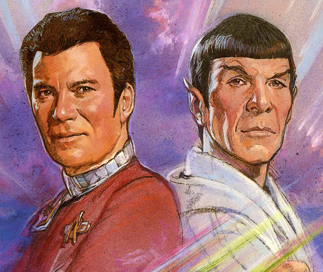
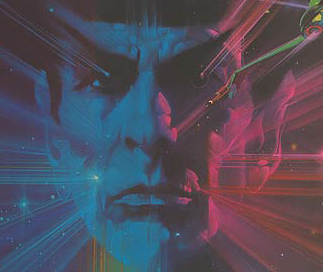
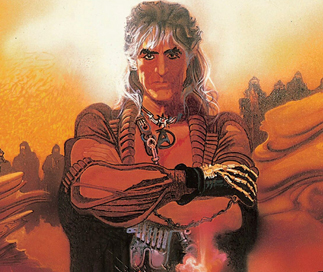


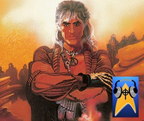
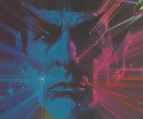
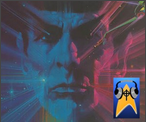
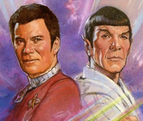
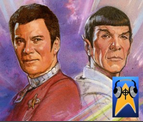
 RSS Feed
RSS Feed
